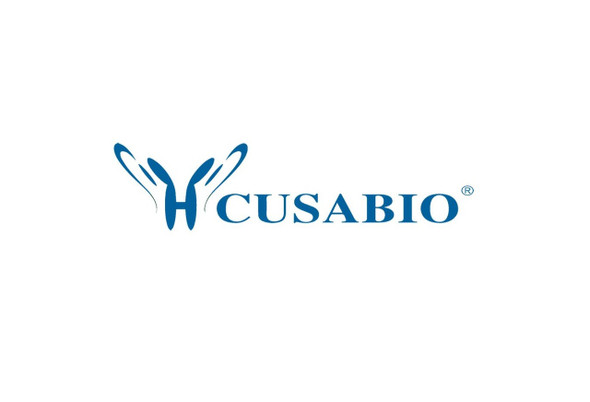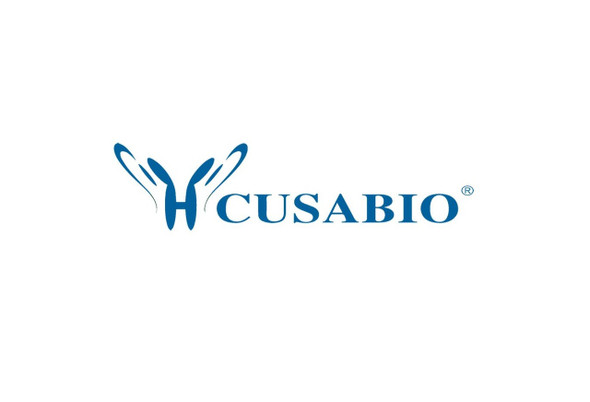Cusabio Mouse Recombinants
Recombinant Mouse Transcription factor GATA-4 (GATA4) | CSB-EP009277MO
- SKU:
- CSB-EP009277MO
- Availability:
- 13 - 23 Working Days
Description
Recombinant Mouse Transcription factor GATA-4 (GATA4) | CSB-EP009277MO | Cusabio
Alternative Name(s): GATA-binding factor 4 Gata-4
Gene Names: GATA4
Research Areas: Cancer
Organism: Mus musculus (Mouse)
AA Sequence: MYQSLAMAANHGPPPGAYEAGGPGAFMHSAGAASSPVYVPTPRVPSSVLGLSYLQGGGSAAAAGTTSGGSSGAGPSGAGPGTQQGSPGWSQAGAEGAAYTPPPVSPRFSFPGTTGSLAAAAAAAAAREAAAYGSGGGAAGAGLAGREQYGRPGFAGSYSSPYPAYMADVGASWAAAAAASAGPFDSPVLHSLPGRANPGRHPNLDMFDDFSEGRECVNCGAMSTPLWRRDGTGHYLCNACGLYHKMNGINRPLIKPQRRLSASRRVGLSCANCQTTTTTLWRRNAEGEPVCNACGLYMKLHGVPRPLAMRKEGIQTRKRKPKNLNKSKTPAGPAGETLPPSSGASSGNSSNATSSSSSSEEMRPIKTEPGLSSHYGHSSSMSQTFSTVSGHGPSIHPVLSALKLSPQGYASPVTQTSQASSKQDSWNSLVLADSHGDIITA
Source: E.coli
Tag Info: N-terminal 10xHis-tagged and C-terminal Myc-tagged
Expression Region: 1-441aa
Sequence Info: Full Length
MW: 49.6 kDa
Purity: Greater than 85% as determined by SDS-PAGE.
Relevance: Transcriptional activator that binds to the consensus sequence 5'-AGATAG-3' and plays a key role in cardiac development. In cooperation with TBX5, it binds to cardiac super-enhancers and promotes cardiomyocyte gene expression, while it downregulates endocardial and endothelial gene expression. Involved in bone morphogenetic protein (BMP)-mediated induction of cardiac-specific gene expression. Binds to BMP response element (BMPRE) DNA sequences within cardiac activating regions. Acts as a transcriptional activator of ANF in cooperation with NKX2-5. Promotes cardiac myocyte enlargement. Required during testicular development. May play a role in sphingolipid signaling by regulating the expression of sphingosine-1-phosphate degrading enzyme, spingosine-1-phosphate lyase
Reference: "Mouse GATA-4: a retinoic acid-inducible GATA-binding transcription factor expressed in endodermally derived tissues and heart." Arceci R.J., King A.A., Simon M.C., Orkin S.H., Wilson D.B. Mol. Cell. Biol. 13:2235-2246(1993)
Storage: The shelf life is related to many factors, storage state, buffer ingredients, storage temperature and the stability of the protein itself. Generally, the shelf life of liquid form is 6 months at -20?/-80?. The shelf life of lyophilized form is 12 months at -20?/-80?.
Notes: Repeated freezing and thawing is not recommended. Store working aliquots at 4? for up to one week.
Function: Transcriptional activator that binds to the consensus sequence 5'-AGATAG-3' and plays a key role in cardiac development (By similarity). In cooperation with TBX5, it binds to cardiac super-enhancers and promotes cardiomyocyte gene expression, while it downregulates endocardial and endothelial gene expression (By similarity). Involved in bone morphogenetic protein (BMP)-mediated induction of cardiac-specific gene expression (By similarity). Binds to BMP response element (BMPRE) DNA sequences within cardiac activating regions (By similarity). Acts as a transcriptional activator of ANF in cooperation with NKX2-5
Involvement in disease:
Subcellular Location: Nucleus
Protein Families:
Tissue Specificity: Heart, intestine, liver, primative endoderm and gonads.
Paythway:
Form: Liquid or Lyophilized powder
Buffer: If the delivery form is liquid, the default storage buffer is Tris/PBS-based buffer, 5%-50% glycerol. If the delivery form is lyophilized powder, the buffer before lyophilization is Tris/PBS-based buffer, 6% Trehalose, pH 8.0.
Reconstitution: We recommend that this vial be briefly centrifuged prior to opening to bring the contents to the bottom. Please reconstitute protein in deionized sterile water to a concentration of 0.1-1.0 mg/mL.We recommend to add 5-50% of glycerol (final concentration) and aliquot for long-term storage at -20?/-80?. Our default final concentration of glycerol is 50%. Customers could use it as reference.
Uniprot ID: Q08369
HGNC Database Link: N/A
UniGene Database Link: UniGene
KEGG Database Link: KEGG
STRING Database Link: STRING
OMIM Database Link: N/A









